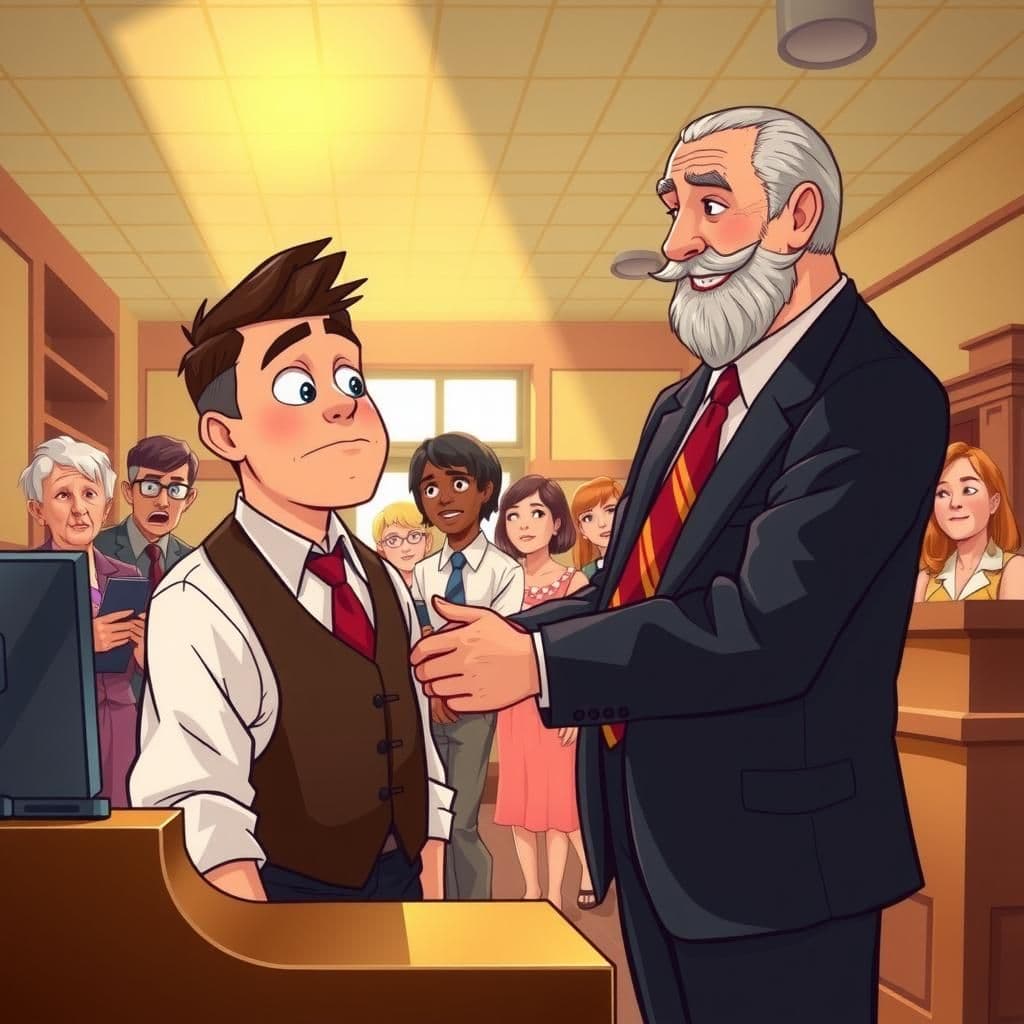The Faithful Cashier

Story Summary
In "The Faithful Cashier," a bank cashier who defaults on funds claims he used the money for dues to a mutual defense association that protects members under suspicion. This educational moral story highlights the lengths to which individuals might go to maintain appearances, as the association's strategy involves demonstrating a lack of community involvement to reassure the bank's directors. Ultimately, the president covers the cashier's shortage, restoring him to his position, offering a moral lesson about integrity and reputation in moral-based storytelling.
Click to reveal the moral of the story
The story illustrates that one's reputation can be manipulated and protected through associations and appearances, often at the expense of integrity.
Historical Context
This story reflects themes of moral ambiguity and institutional corruption, echoing the satirical style of 19th-century literature, particularly in the works of authors like Mark Twain and Charles Dickens, who often critiqued societal norms and the ethics of financial institutions. The narrative draws on historical instances of financial misconduct and the often dubious measures taken to restore reputations, highlighting a cultural context where social standing and perceived morality could overshadow actual wrongdoing. Its origins may align with American folk tales or parables that expose the absurdities of human behavior and the lengths to which individuals will go to protect their interests.
Our Editors Opinion
This story highlights the lengths individuals may go to in order to protect their reputations, often at the expense of integrity and ethical behavior. In modern life, a real-life scenario might involve a corporate employee who engages in unethical practices, justifying their actions by claiming they were merely following industry norms or protecting their job security, ultimately risking the trust of their colleagues and the public.
You May Also Like

The Mother and the Wolf
In this moral-based storytelling tale, a famished wolf waits outside a cottage after hearing a mother threaten to throw her child to him, only to later hear her reassuring the child that they would kill the wolf if he approached. Disappointed and empty-handed, the wolf returns home to explain to Mistress Wolf that he was misled by the woman's words, highlighting the importance of discerning truth in meaningful stories with moral lessons. This best moral story serves as a cautionary reminder for class 7 students about the dangers of taking words at face value.

The Fox Without a Tail
In this short moral story, a Fox, having lost his tail in a trap, proposes that all foxes should abandon their tails, claiming they are inconvenient. An older fox wisely points out that this advice seems self-serving, highlighting a key life lesson about the distrust of self-interested counsel. This storytelling with morals reminds us to be cautious of simple lessons from stories that may be influenced by personal motives.

The Farmer and the Cranes
In "The Farmer and the Cranes," a farmer initially uses an empty sling to scare away cranes from his wheat fields, but when the birds no longer fear him, he loads the sling with stones and kills many. Realizing that his threats have turned into real danger, the surviving cranes decide it's time to leave for safety, understanding that when words fail, actions must follow. This impactful moral story teaches a valuable lesson about recognizing true threats, making it a memorable addition to famous fables with moral lessons and short bedtime stories with moral insights.
Other names for this story
The Loyal Cashier, The Trustworthy Teller, The Cashier's Dilemma, A Cashier's Integrity, The Unsung Cashier, Secrets of the Cashier, The Cashier's Defense, The Cashier's Redemption
Did You Know?
This story highlights the theme of moral ambiguity in human behavior, showcasing how individuals can manipulate social institutions for personal gain while simultaneously masking their actions under the guise of community and respectability.
Subscribe to Daily Stories
Get a new moral story in your inbox every day.